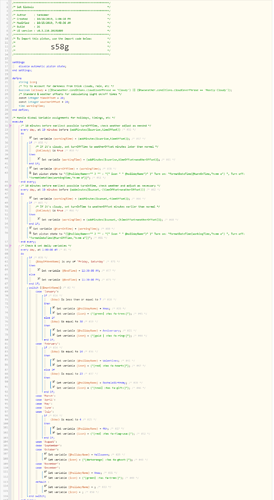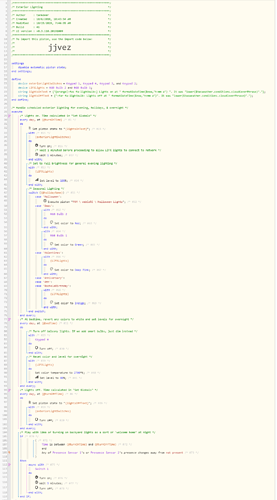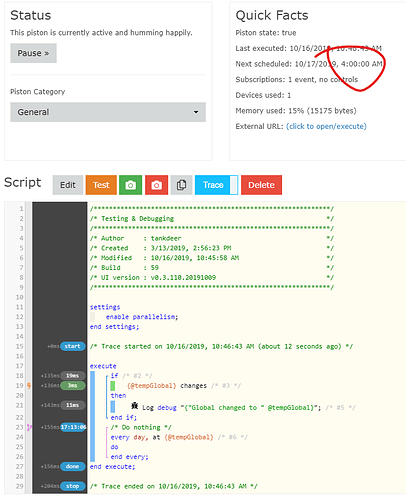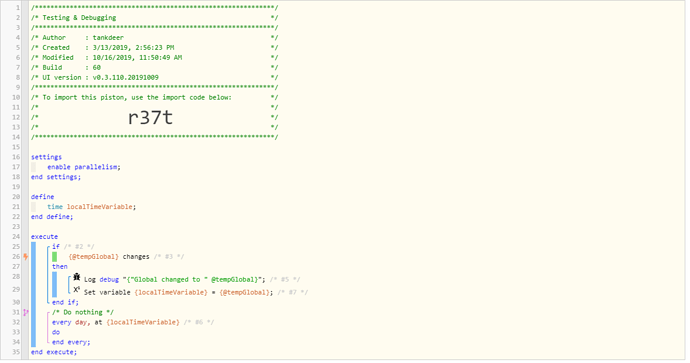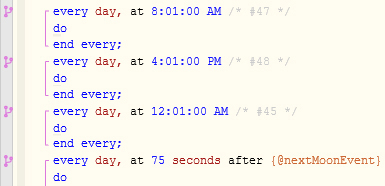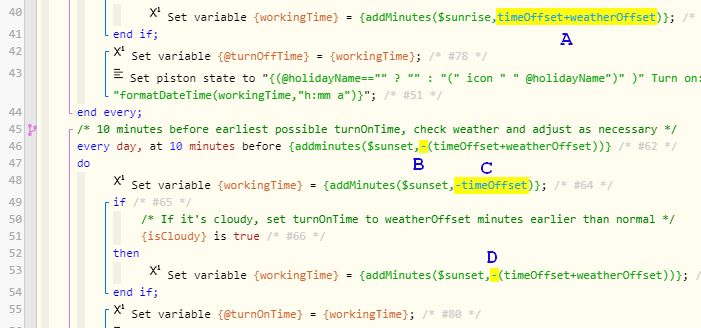1) Give a description of the problem
I have a basic lighting piston to turn on/off our exterior lights at predetermined times. Those times are calculated in another piston and saved to global variables. Basically I want to turn the lights on slightly early (and off slightly late) based on weather conditions
2) What is the expected behaviour?
The lighting piston should execute at the time calculated
3) What is happening/not happening?
It seems like the piston subscription does not get changed after the global variable is updated. I was under the impression that global variable changes are instant (save for in the piston doing the changes). But apparently that doesn’t update existing subscriptions? As such, the lighting piston executes based on the previous value in the global
**4) Post a Green Snapshot of the piston!
Time calculation:
Exterior Lighting:
In essence, I need to somehow force the Exterior Lighting piston to resubscribe or reevaluate the time after it’s calculated in the Set Globals piston. Is that possible?

